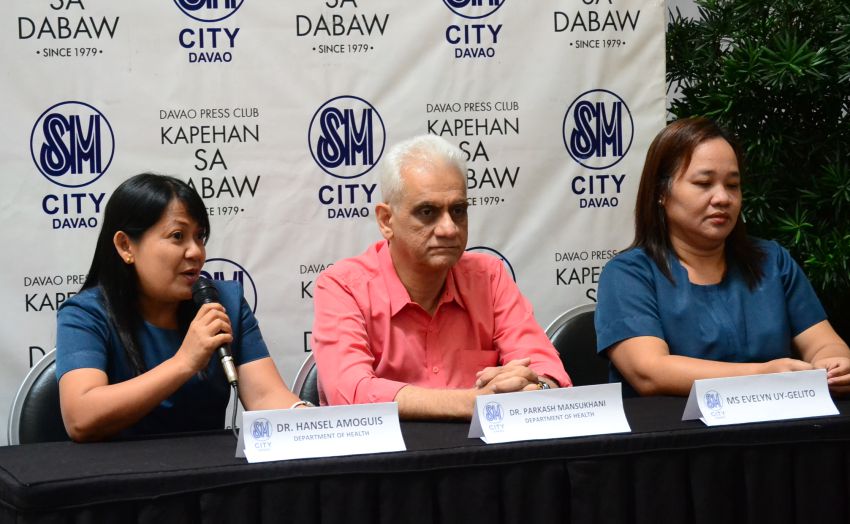
ELIMINATING TUBERCULOSIS. Department of Health (DOH) Region 11 Tuberculosis Program Medical Coordinator, Dr. Hansel Amoguis, Dr. Parkash Mansukhani, and Nurse Evelyn Uy-Gelito, say the government is now intensifying their efforts to eliminate tuberculosis in the Philippines. (Robby Joy D. Salveron/davaotoday.com)
DAVAO CITY, Philippines – There were as many as 7,000 tuberculosis cases recorded in the Davao Region in the first two quarters of the year, a health official said, describing it as already half the number recorded last year.
Department of Health Regional Tuberculosis Program Medical Coordinator, Dr. Hansel Amoguis said “there’s still six months remaining to determine whether the number of cases detected have increased.”
“We have 13,330 cases detected in Region 11 for year 2016. Currently, in the first two quarters we about half of it,” Amoguis said.
Amoguis said majority of the cases belong to the middle-aged group (36-55 years old) and are mostly males.
She said one of the efforts currently being done was “to look for those missing TB cases on the young age group and women.”
“Because of the advocacies, because more initiatives are being done under the program of the DOH we are expecting more detected cases including the cases at the barangay level and the vulnerable groups. I think we will have an increase in the number of TB detected cases in 2017,” Amoguis said.
Dr. Parkash Mansukhani said the Philippines’ socioeconomic status probably has a big impact “why the country remains to be struggling with TB epidemic.”
“In socioeconomic terms, if people are on low economic status, then people living in the same household, let’s say we have three families in one room, it will spread among them. Secondly, if they have poor nutrition and have lifestyle habits like smoking, alcohol abuse, AIDs, then TB will reactivate that is why it’s hard to control,” Mansukhani said.
Amoguis assured that with the new strategy of eliminating TB, all health centers in the entire region have an established and fully functional tuberculosis microscopy laboratory (TML) and can provide quality TB services such as TB screening, treatment and management, and medication for free.
“We are moving towards the integration of patient centeredness that is one pillars for that strategy to improve our diagnostic and treatment services especially the vulnerable population groups- the elderly and children,” Amoguis said.
Amoguis added that DOH is also intensifying innovations and researches, and the engagement with both the public and private partners in order to eliminate TB in the region. (davaotoday.com)










